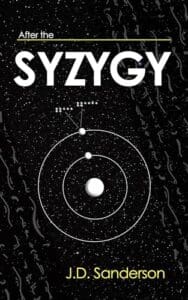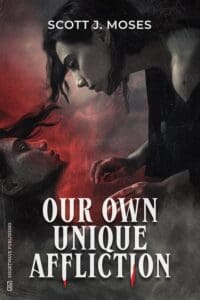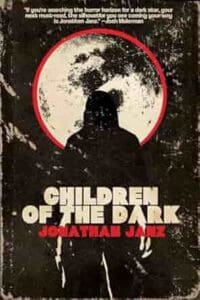
Welcome back, friends and strangers alike. It has been a while since I wrote one of these; in fact, the last time I discussed Stephen King in this much detail, I was discussing the vibrant shores of Duma Key. However, I return to this essay series today, on 11/22/2024, to discuss what may be King’s greatest literary accomplishment, 11/22/63.
To lay down some ground rules for the new folks here, my inspiration behind these ramblings is this: I did not read Stephen King at a young age. While I feel slightly behind the curve for not having read some of the biggest books in all of horror (or fiction in general), I’m glad to say I’m reading these stories now as a young adult with *some* life experience under my belt. And rather than pen a review that critiques these stories that I’m discovering for the first time, I wanted to construct personal pieces, essays, that outline the impact of these books on my life. These are my own thoughts, opinions, and takeaways from King’s catalog in which I unpack all that I can, including spoilers. Here is your warning now; if you haven’t read 11/22/63, tread cautiously. Now for the main event.
“What if?”
It’s a small question. Two words. Six letters. One big answer. This is the question that Stephen King poses with his well-loved, highly-regarded novel, 11/22/63. That one question seems to be applied to the Kennedy assassination that took place in Dallas, Texas on November 22nd in the year of 1963. But that simple question seems to gain tremendous weight for Jake Epping, the man who returns to the past to try to stop a bullet from leaving Lee Harvey Oswald’s rifle on the sixth floor of the Texas Book Depository. Those two words, six letters, take on a much deeper meaning, a question that can change the trajectory of everything for everyone, or even just someone in one small way. What if? What if you could stop a bullet? What if you met the love of your life in a time and place that defies all logic, all reason? What if, what if…
It is not an exaggeration to say that 11/22/63 is the most beloved of King’s works. Hearing from every kind of reader, this is a novel that lands and lands with significant impact across the board. In some ways, it feels a little strange that a historical, sci-fi-esque novel is the most revered from King given his prowess within the horror genre. Yet, it also makes perfect sense given how human all of King’s stories are, the humanity that drips off the pages and into our hands. And most of all, 11/22/63 is a story of examining one of the most common questions across the human race, “What if?”
It would be remiss of me to gloss over the historical, political, and sociological implications that a novel such as 11/22/63 holds. There is a great amount of detail placed into the past from 1958 to 1963, specifically into the movements and history of JFK, Lee Harvey Oswald, and the like. As anyone with a beating heart in America knows, the idea that Lee Harvey Oswald was solely responsible for the assassination of President Kennedy is not one that is widely accepted. In fact, many scholars, historians, and academics have dedicated their life’s work to figuring out what in the hell actually happened in Dallas that November day. While it would have been interesting for King to pull at conspiracy theories, that is not something that he wastes page space on. And quite frankly, given the product that sits on everyone’s shelves, I’m glad he didn’t.
Rather than spinning wheels on a shooter on the grassy knoll (which I’m not discrediting, I’m speaking in terms of the book here), King writes a love story. Now, if anyone had ever tried to sell me on a historical sci-fi novel that moved me to weeping tears and sobs over the romance component of the plot, I would have told you, you were insane. Yet, King pulls it off. Why? Because of the humanity, the love, the life of 11/22/63.
Death is the greatest equalizer among us all. A change that is so vast, so impactful, yet every single one of us must contend with in our lifespan. Some deaths may seem bigger than others, but King shows us that quite the opposite is true in this novel. When Jake Epping takes on the monumental task of attempting to stop President Kennedy’s death, we feel as though JFK’s assassination is the biggest death of all. Death to possibilities for a country, death to the social contract between a nation and its citizens, death on the biggest scale. Yet, within a few hundred pages or so, King left me forgetting JFK entirely once he introduced us to a small town in Texas named Jodie.
Now before I jump to Jodie and all the heart that lives there, I should point out one of the most fascinating connections of this novel, Jake’s time in a town called Derry. During Jake’s trip to the past, he finds himself in this place, a place that just isn’t right, a place with a meanness that we know all too well thanks to King’s 1986 novel, IT. Part of Jake’s time in Derry is filled with stories of strange murders and a possible killer clown on the loose. But Jake also runs into Richie Tozier and Beverly Marsh, two kids attempting to learn how to swing dance. Bev and Richie will always hold a special place in my heart as they are two members of The Loser’s Club who feel so unique for their personalities and characterizations. It is an interesting pairing that King gives us from The Loser’s Club, one that is rife with innocence, joy, and old-fashioned fun. It’s an oddly reassuring notion to know that King can’t quite let these characters go just yet either, choosing to give them page space over twenty years after the publication of IT. It’s even more comforting to know the kids are alright after all following the wrath of Pennywise; in fact, they’re dancing near the street. Cue “In the Mood” by Glenn Miller.
But back to the core of 11/22/63, in which Jake finds himself in a small Texas town, a place he can live while he gathers information on Lee Harvey Oswald away from the rough and tumble life of Dallas and Fort Worth. A quaint place called Jodie. Can you be nostalgic for a place you’ve never been? A time you’ve never lived? I certainly think King makes a strong argument for the answer to that question being a resounding, “yes.” It’s hard to pinpoint where King makes this place so loveable, so romantic, so idyllic. Maybe it’s the local restaurant everyone goes to, maybe it’s a life unbothered by the unrelenting connection of technology in this day and age, or maybe it is the unifying force of a small-town football team making it to the state championship. Maybe it’s just strongly tinted rose-colored glasses. But, more than likely, it’s the people of Jodie that capture our hearts in this way, the characters that King writes with so much depth, emotion, personality, and sheer life that ignoring them is impossible. From Deke to Mimi to Ellen to, of course, Sadie, a level of immense care and authenticity is instituted within every line of dialogue, every subtle action, and every breath these characters take. It’s an incredible drama that King writes here, of course with Jake and Sadie’s love, but also the love that exists between the community of Jodie.
See how I can completely forget about the historical implications of this novel? Jake’s interpersonal relationships take on an extra layer of suspense knowing what his purpose is and what he has set out to do. It’s a high-stakes existence that King gives Jake, a balance of two lives as Jake and George (his name he utilizes in the past), entwined within the townsfolk of Jodie who we also come to care for as much as (if not more than) Jake. The sections of the novel spent in Jodie firmly institute that death does not have a size, shape, or weight; death is equally devastating. Death can rock a whole world with a single bullet, a single diagnosis, or even a single slash of a knife.
One of the biggest gut punches delivered by 11/22/63 comes in the moral, ethical, and logical dilemma Jake faces following November 11, 1963. The result of that day, the implications that become reality thanks to Jake’s (and Sadie’s) tampering, are catastrophic on every level imaginable. Jake’s return to the present of course proves this, but this is something we knew before then. As soon as Oswald’s bullet strikes Sadie’s chest, the biggest question of this novel is no longer centered around saving JFK. It’s about saving Sadie, what that looks like for Jake, and if he has the gumption to do it. These final chapters are rife with an emotional atmosphere that imparts feelings of yearning, desperation, and utter heartbreak. There is a palpable sense of grief on the page as Jake bargains with himself, trying to find a way for one more day, one more moment, one more dance with Sadie. Of course, we see this play out in a bittersweet way, yet one that is romantic and heart-shattering for these seemingly star-crossed lovers.
“Life turns on a dime.”
It’s a phrase King repeats time and time again in this book, a sentiment imparted that every moment counts. The “watershed” moments of our lives can come in every form imaginable. Sure, it is easy to point out the big events such as the presidential assassination as the real game-changers. But 11/22/63 argues that watershed moments also come in the form of a 1954 Ford Sunliner Convertible, a Glenn Miller record, or even a pound cake.
11/22/63 is a love story beyond all measures even though it wears the clothing of a time-travel novel. Jake and Sadie’s love manages to steal the show with ease, but I would argue that it’s King’s love for life, the little moments of magic, that really define this 1,000-page tome a love story. Perhaps this idea is best personified through Sadie Dunhill, a woman who has been through more than her share of heartache and who stumbles quite often thanks to her lack of coordination. Yet, Sadie dances even knowing she may fall. After all, dancing is life. We can’t go back and change the past despite how much how much real estate our brains decide to take up on that mindset. But, there’s peace in knowing things may happen for a reason, and that we should celebrate the moments we have now. Shouldn’t we all take a little time to dance? Even in the face of so much doom, carrying the weight of this thing called life, we should dance.




Leave a Reply